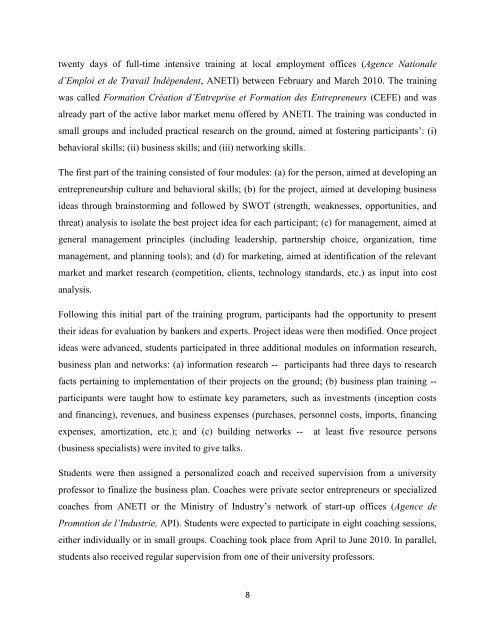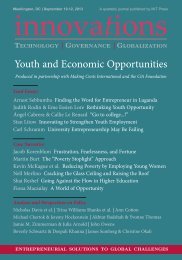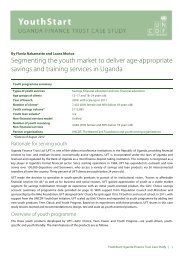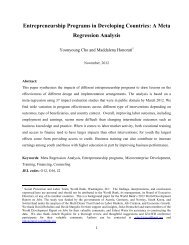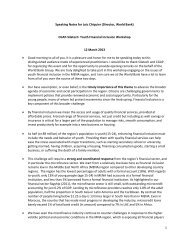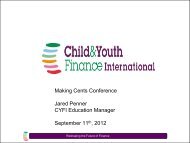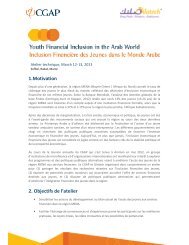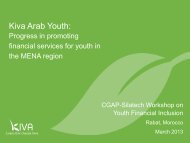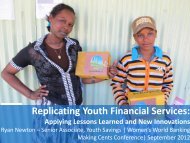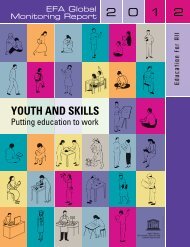Download - Youth Economic Opportunities
Download - Youth Economic Opportunities
Download - Youth Economic Opportunities
Create successful ePaper yourself
Turn your PDF publications into a flip-book with our unique Google optimized e-Paper software.
twenty days of full-time intensive training at local employment offices (Agence Nationaled’Emploi et de Travail Indépendent, ANETI) between February and March 2010. The trainingwas called Formation Création d’Entreprise et Formation des Entrepreneurs (CEFE) and wasalready part of the active labor market menu offered by ANETI. The training was conducted insmall groups and included practical research on the ground, aimed at fostering participants’: (i)behavioral skills; (ii) business skills; and (iii) networking skills.The first part of the training consisted of four modules: (a) for the person, aimed at developing anentrepreneurship culture and behavioral skills; (b) for the project, aimed at developing businessideas through brainstorming and followed by SWOT (strength, weaknesses, opportunities, andthreat) analysis to isolate the best project idea for each participant; (c) for management, aimed atgeneral management principles (including leadership, partnership choice, organization, timemanagement, and planning tools); and (d) for marketing, aimed at identification of the relevantmarket and market research (competition, clients, technology standards, etc.) as input into costanalysis.Following this initial part of the training program, participants had the opportunity to presenttheir ideas for evaluation by bankers and experts. Project ideas were then modified. Once projectideas were advanced, students participated in three additional modules on information research,business plan and networks: (a) information research -- participants had three days to researchfacts pertaining to implementation of their projects on the ground; (b) business plan training --participants were taught how to estimate key parameters, such as investments (inception costsand financing), revenues, and business expenses (purchases, personnel costs, imports, financingexpenses, amortization, etc.); and (c) building networks -- at least five resource persons(business specialists) were invited to give talks.Students were then assigned a personalized coach and received supervision from a universityprofessor to finalize the business plan. Coaches were private sector entrepreneurs or specializedcoaches from ANETI or the Ministry of Industry’s network of start-up offices (Agence dePromotion de l’Industrie, API). Students were expected to participate in eight coaching sessions,either individually or in small groups. Coaching took place from April to June 2010. In parallel,students also received regular supervision from one of their university professors.8


